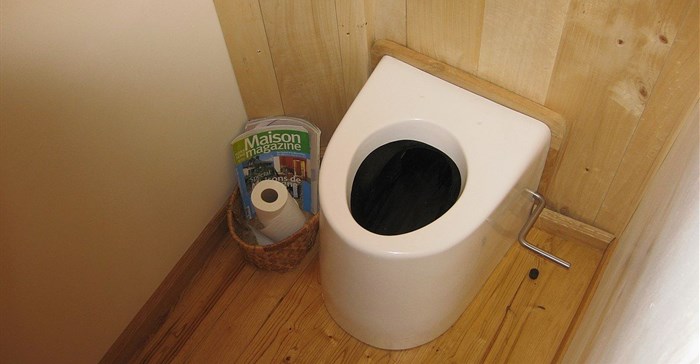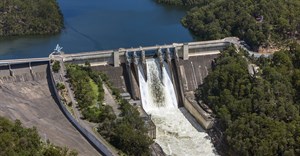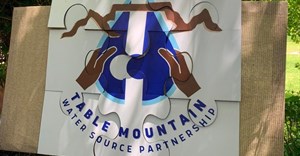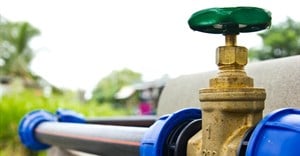
Subscribe & Follow

5 brilliant female engineers changing the sanitation landscape

Readers of the British Medical Journal ranked clean water and safe sewage disposal as the most important medical milestone in the last 150 years. A WHO report released in 2007 indicated that it would be possible to receive an estimated $9 return on investment for every $1 by halving the population without access to appropriate sanitation. By achieving the target, the report suggested that around 190 million annual diarrheal diseases could be averted globally.
Complex challenge
Although South Africa has made significant strides in safe water and sanitation provision, there are still people that do not have an appropriate sanitation system. The sanitation challenge is complex and is related to user preferences and technical constraints, and these are often hard to match. A large part of the population would prefer a flush toilet but this is a major challenge in a water scarce country such as South Africa. For this reason, we often find dry toilets outside major urban areas as it is technically challenging to provide flush toilet systems in areas where water is restricted and where there are no existing sewers. The laying of sewer pipes is expensive and for it to function effectively, it requires both reliable energy and sufficient water supply.
Recent climatic change events have also started to make us realise the value of using clean water to flush down human excreta, even for areas with sewer systems in place. During the Cape Town drought, citizens of the city realised it was not sensible to flush nine to 12 litres of drinking water each time the toilet was used. Many started instead to recycle their showering and laundry water to flush toilets.
On a national level, brilliant engineers are looking to re-engineer toilet systems that meet user expectations and use less resources, and developing innovative ways in which we can provide sustainable sanitation solutions to South Africa. In my field of work I have met with many brilliant engineers who have and continue to make admirable strides, particularly, in the field of sanitation, and they happen to be women!
Lungi Zuma
Lungi Zuma is a chemical engineer who holds an undergraduate degree from University of Cape Town (UCT) and a master’s degree from UKZN. After working in the petrochemical industry, Zuma decided she would use her skills to assist with the sanitation challenge. For her master’s degree, she evaluated how pit latrines and other dry toilets function which involved her conducting chemical and physical analysis on the faecal waste she collected. This information is critical for design engineers to develop treatment systems that can safely treat the faecal waste. Zuma now works at eThekwini Municipality and has been a key figure in the development and evaluation of novel sanitation systems at the municipality. In 2015, she was invited by the then minister of water and sanitation to take part in Youth Day celebrations in Pretoria after showing the minister the innovative treatment systems installed in eThekwini during the Sanitation Indaba held in Durban 14-15 May 2015.
Jeanette Neethling
Jeanette Neethling is an engineer working for Partners in Development, an engineering firm based in Pietermaritzburg. Neethling obtained her master’s degree in environmental engineering at University of Colorado Boulder in the USA. She has contributed to the development of many innovative sanitation solutions for South Africa. She has led three WRC studies. The first focused on developing and testing better management techniques for rural schools. The second evaluated the appropriateness and applicability of female urinals to shorten the length of queues at public ablution facilities.
Her latest research involves the monitoring of an innovative toilet system called the Low Pour Flush toilet. The Low Pour Flush toilet was developed by the company that she works for and has been designed to use low volumes of flush water and can operate without the need for conventional sewers. The innovative school sanitation management project that she led has been successful; Unilever through their Domestos brand recognised the value of her work and upscaled the product to assist with sanitation provision in 150 schools.
Dr "Tina" Velkushanova
Known to her peers as “Tina”, Dr Velkushanova is an environmental engineer and an expert in WASH and sanitary engineering. She holds a PhD degree in civil and environmental engineering from the University of Southampton, UK. Velkushanova is a senior research associate at the University of KwaZulu-Natal’s Pollution Research Group, where she mentored postgraduate students and provided information for the improved design of future on-site sanitation facilities and technologies, and mechanical pit-emptying devices (devices that can empty poop from dry toilets).
Some of these projects are funded under the Bill & Melinda Gates Foundation’s programmes “Reinvent the Toilet Challenge” and the “Transformative Technologies” and include collaboration with local and international partnering organisations. Two years ago, she was awarded a prestigious grant from the Bill & Melinda Gates Foundation for developing standardised methods for characterising faecal waste from non-sewered sanitation systems and leads a team of researchers based in Switzerland, The Netherlands and Thailand.
Unathi Jack
Unathi Jack works for Emanti Management based in Stellenbosch. She holds an M.Tech in chemical engineering from Peninsula Technikon. Jack has been leading a programme aimed at developing planning tools to manage non-sewered systems. Using a tool developed by GiZ and the World Bank – known as the Excreta Flow Diagram – she has been facilitating the training of sanitation stakeholders in developing the sanitation planning for their area with funding support from the WRC.
Jack has contributed to the development of risk assessment tools and water services-related guidelines; assessment of drinking water and wastewater systems; and analysis and interpretation of water quality data and wastewater effluent quality. She also assists in conducting environment impact assessments and assisting clients to understand and implement the relevant policies, regulations and strategies.
Lerato Magalo
Lerato Magalo has a B-Tech degree in civil engineering from the Tshwane University of Technology, a postgraduate diploma in business administration (PDBA) from the Gordon Institute of Business Science (GIBS) and has completed a Harvard Leadership Programme. At the Standards Division of the South African Bureau of Standards (SABS), she is the programme manager for engineering and built environment standards, which includes the development of standards in the built environment, as well as transportation, automotive, mechanical and mining standards.
Despite her wide portfolio, Magalo still finds the time to serve as the head of delegation for SABS for ISO standards development for innovative sanitation solutions that do not require sewers. Magalo provides her extensive engineering experience to ensure that new sanitation systems meet local safety requirements.













